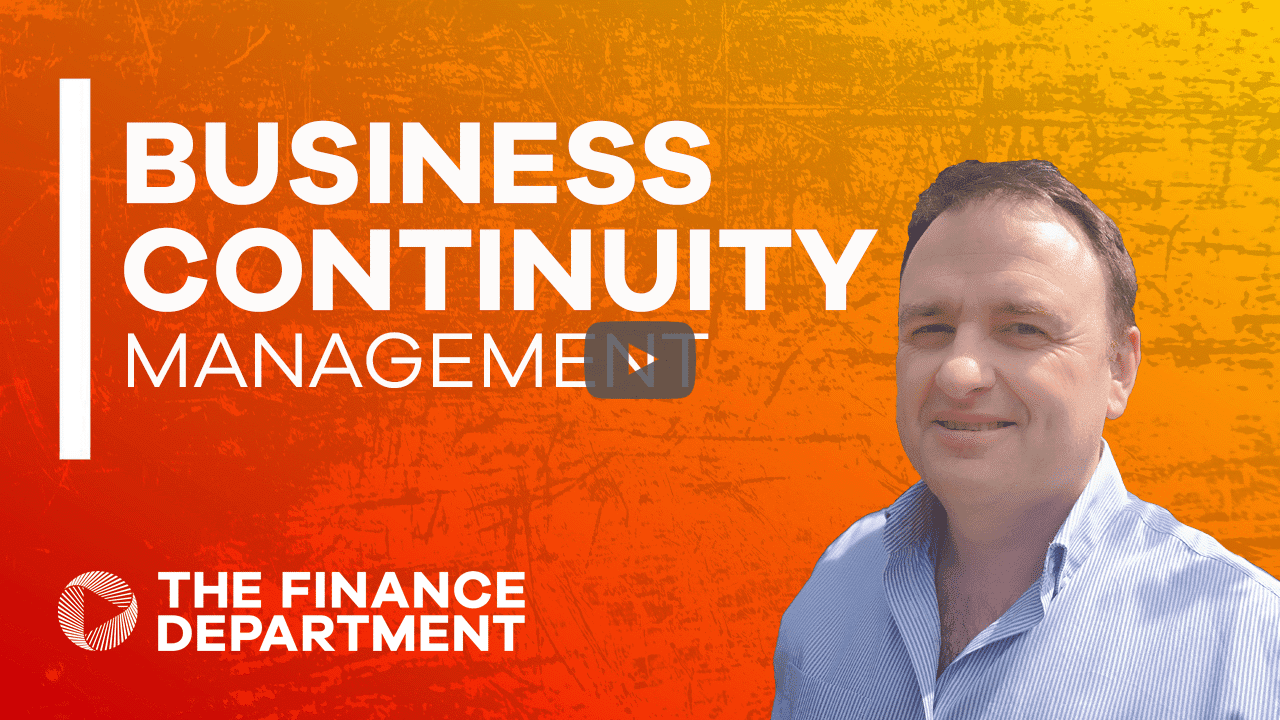Join today and start learning
TFD is the learning platform built for finance professionals.
This content is available as part of our bitesized video series.
Watch this video today by joining our free community.
Join today and start learning
TFD is the learning platform built for finance professionals.
This content is available as part of our bitesized video series.
Watch this video today by joining our free community.
Video : What are company registers and why you need them
Is your limited company breaking the law? It’s possible if you formed your company online and don’t have formal ‘registers’. In this video Dan runs you through what they are and why they are important.
Could your limited company be breaking the law?
Well, if you don’t have company registers, you could well be.
As a business accountant, my team and I help small businesses all day long on their journey, and one of the most common things we see these days is somebody’s heard it’s a great idea to form a limited company, might even have heard me say on here, and then they’ve gone and they’ve formed this company for cheap online strict with companies house, or similar.
Now, what happens when you do that is you don’t get something called the company registers, and you need to have those by law, and in this video I wanted to talk about what they are, the type of things that need to be in them and why it’s important really to make sure that you’ve got them because there are hefty penalties for not having them.
So before we get into the video, if you like this type of stuff, click the subscribe button below and you get notified whenever we release more content just like it.
So let’s get into it. The best place to start would be to say what our company registers? So in the olden days, so actually it wasn’t that long ago and it’s still, you can still buy them like this, but used to be an actual big binder. So, we used to have them in our offices, used to have hundred of them, these big binders that were people’s, you used to sort of buy them. So when you formed it originally, you used to get it in a nice little file and it had all these different of paper in it.
Now, these bits of paper are the registers. Of course these days they can be, and are more commonly kept, as digital documents because you can just upload, you know update them they are quite often just a Word document or something like that. But what they really contain is information on, who owns the company, the history of that ownership and the people in control of it, it’s really based around that, and the idea of course is that Companies House then know what happens, anybody who’s involved, a member of that company, who owns some of the shares or something like that, can also find out who’s in control.
So, if you imagine for a small company, you know, might be you, you’re the owner and the director and there’s not a lot in there, but for a larger company there’s going to be more people involved in everything else and it doesn’t really matter the law doesn’t change, it’s still the same, you still need these registers.
Then you might think well, if it’s only me why bother, well apart from the potential £5K+ fine for not actually holding these registers if they looked, is that sometimes you need them, so if you’re looking for a potential investment or you want to sell the business or something like that, quite often, they’re asked.
So, we get involved with some larger property transactions on occasion and they’re always asked for, people want to see a certified registers, you know, what are the actual legal documents exist to be company ownership, and prove ownership, these kind of things.
So, you do on occasion need them, but ultimately the main reason you’re going to want them is you need them full by law, and that piece of law is called the Companies Act 2006, if you’re interested.
Now, in terms of what registers you have to keep, sometimes there’s some optional ones included, but generally you’re going to need the register of directors, a register of directors in their residential addresses, you’re going to need one of secretaries, if you’ve got company secretaries in there, you’re going to need a people with significant control register, which is all about, that’s a whole other video probably, but it’s a register that says, you know, most of the time it’s going to be if its just you, and you’re the shareholder and director, you’ll be on there because you’re really in control of that business. So, you’ll be on that, but there are very set things about who should be on there, depending on what criteria you meet. So you need those bits, and you need of course, a register members, which is the shareholders, the people that own the shares of the company, and ultimately own the company.
Now, on top of that, you might find that if you were to buy some registers, they might also give you one where they call it, like, share allotments, which is where you’ve issued shares, and share transfers. Sometimes they’re combined into other documents, but ultimately, if you imagine, it’s just the history of the company, you know, these shares on this day, they were then transferred to X or Y, these people are were directors they’re now not, this was their address, it’s now not, and it’s all about history in there. So, that’s there.
And as I say, digital or literally, I’ve seen them. I saw one this week actually, where they have the old binder, but we’re seeing more and more limited companies where people are forming them online and they just don’t have them.
Now, we mentioned digital so the next question would be well, where do I need to keep them? It seems a bit odd to have this thing on my shelf. Well, actually, you have to hold it at your company is registered office. So sometimes you might have an accountant where you’re using their registered office address to keep your address off the public record, now that’s quite normal. So therefore, your accountant would normally have them, or, and actually a lot of time the accountant the people producing them so, they’re not always, not always but quite often, or you have it at what they call a SAIL address, an alternative inspection location. So you can say look, if you want to turn up and look at them, they’re at this other location. So it needs to be one of those two things. So, and of course, if it’s digital, that’s easy, you can just, you know, have it wherever really, but it should be on one of those two things.
Now then I mentioned there about people inspecting them, so the other thing you’d want to know is who can see them. Well actually, anyone who is a member of the companies’, you know, if you’re shareholding you got some sort of ownership, you can request to see those. And actually, there are time scales mentioned about when they should be available and all this kind of stuff. But ultimately they should be able to see them, and they should be able see them free of charge, but there is also the opportunity for the public to see them if they requested. But there’s a lot of caveats to that and conditions but just know that it is possible that a public person, at a cost, could actually ask to see your registers.
Now, a lot of this stuff is available at Companies House but not to the detail, the registers hold. So quite often you would have, you might have like now, if you’ve got a Companies House and search up a limited company, you’d find the director. But you wouldn’t see the full day of birth, where as on a register you would see the full day of birth. So, there are a lot more detail in there. You can also hide director’s residential addresses by using a director service address online, in the registers as we already mentioned, that actual true residential addresses are there. So the public could request, but they have to, there’s various different reasons to and hoops to jump through in order to get that. But it’s just knowing that that is possible.
Now, I mention it and I wouldn’t suggest you probably ever want to do this, but there are the options back in June, 2016, I believe it was, you could choose to actually, I can’t be bothered to keep my registers here, like in my registered office, what I want to do is put them on Companies House. So, there is the option to have it all publicly displayed but why you’d want to do that? I don’t know.
Because of course, for the reasons, we just said, all of your personal details are going to be all in the public domain. But if someone has them that you’ll see on Companies House has a little tab for registers and you can actually see that the docs but that is possible, but yeah, whether you want to do that or not, I doubt.
Now you might have listened to this, and got to it and go, okay, well I don’t have them. So what are we going to do?
Well, the answer is now you know you don’t have them and you know you should have them go and get them sorted.
Now some accountants will do them, solicitors will do them, there might be even places online, I’ve not particularly looked, we do them, surprise.
So there is that option. You can go and get them sorted. Now, the reason you’d want it, I mean, apart from the reasons I’ve said is there is a big fine, potentially, if you don’t have them, they’re a legal document, you should have them, but it’s nothing to stress about. You can get them done. They’re not, you know, or you could put them together yourself if you really wanted to, there’s enough information on the web. I’m sure if you Google it to be able to put it together, it just depends how much time you’ve got in your hands and how much you are concerned about making sure they’re right, but there is that option there.
So yeah, go and get it, go get it fixed, it won’t take you very long to sort it out. And if you do need any help with that, of course, you can get in contact with us and we can talk to you about that.
So, if you’ve enjoyed this and, you know some other limited company owner that potentially doesn’t have these registers, please do share this video with them, and make sure they are aware of their obligations.
So that’s it for this one. I’ll see the next one.
At Heelan Associates we are passionate about business. Our team help small business owners all over the UK to start, survive and grow.
We do this by:
– Helping them to understand their business numbers so they can make better decisions
– Saving time & tax
– Providing trusted advice through our close relationship with them
Our services include accountancy, tax, book-keeping, payroll, construction industry and business advisory services.
Video: What are company registers and why you need them
Is your limited company breaking the law? It’s possible if you formed your company online and don’t have formal ‘registers’. In this video Dan runs you through what they are and why they are important.
Could your limited company be breaking the law?
Well, if you don’t have company registers, you could well be.
As a business accountant, my team and I help small businesses all day long on their journey, and one of the most common things we see these days is somebody’s heard it’s a great idea to form a limited company, might even have heard me say on here, and then they’ve gone and they’ve formed this company for cheap online strict with companies house, or similar.
Now, what happens when you do that is you don’t get something called the company registers, and you need to have those by law, and in this video I wanted to talk about what they are, the type of things that need to be in them and why it’s important really to make sure that you’ve got them because there are hefty penalties for not having them.
So before we get into the video, if you like this type of stuff, click the subscribe button below and you get notified whenever we release more content just like it.
So let’s get into it. The best place to start would be to say what our company registers? So in the olden days, so actually it wasn’t that long ago and it’s still, you can still buy them like this, but used to be an actual big binder. So, we used to have them in our offices, used to have hundred of them, these big binders that were people’s, you used to sort of buy them. So when you formed it originally, you used to get it in a nice little file and it had all these different of paper in it.
Now, these bits of paper are the registers. Of course these days they can be, and are more commonly kept, as digital documents because you can just upload, you know update them they are quite often just a Word document or something like that. But what they really contain is information on, who owns the company, the history of that ownership and the people in control of it, it’s really based around that, and the idea of course is that Companies House then know what happens, anybody who’s involved, a member of that company, who owns some of the shares or something like that, can also find out who’s in control.
So, if you imagine for a small company, you know, might be you, you’re the owner and the director and there’s not a lot in there, but for a larger company there’s going to be more people involved in everything else and it doesn’t really matter the law doesn’t change, it’s still the same, you still need these registers.
Then you might think well, if it’s only me why bother, well apart from the potential £5K+ fine for not actually holding these registers if they looked, is that sometimes you need them, so if you’re looking for a potential investment or you want to sell the business or something like that, quite often, they’re asked.
So, we get involved with some larger property transactions on occasion and they’re always asked for, people want to see a certified registers, you know, what are the actual legal documents exist to be company ownership, and prove ownership, these kind of things.
So, you do on occasion need them, but ultimately the main reason you’re going to want them is you need them full by law, and that piece of law is called the Companies Act 2006, if you’re interested.
Now, in terms of what registers you have to keep, sometimes there’s some optional ones included, but generally you’re going to need the register of directors, a register of directors in their residential addresses, you’re going to need one of secretaries, if you’ve got company secretaries in there, you’re going to need a people with significant control register, which is all about, that’s a whole other video probably, but it’s a register that says, you know, most of the time it’s going to be if its just you, and you’re the shareholder and director, you’ll be on there because you’re really in control of that business. So, you’ll be on that, but there are very set things about who should be on there, depending on what criteria you meet. So you need those bits, and you need of course, a register members, which is the shareholders, the people that own the shares of the company, and ultimately own the company.
Now, on top of that, you might find that if you were to buy some registers, they might also give you one where they call it, like, share allotments, which is where you’ve issued shares, and share transfers. Sometimes they’re combined into other documents, but ultimately, if you imagine, it’s just the history of the company, you know, these shares on this day, they were then transferred to X or Y, these people are were directors they’re now not, this was their address, it’s now not, and it’s all about history in there. So, that’s there.
And as I say, digital or literally, I’ve seen them. I saw one this week actually, where they have the old binder, but we’re seeing more and more limited companies where people are forming them online and they just don’t have them.
Now, we mentioned digital so the next question would be well, where do I need to keep them? It seems a bit odd to have this thing on my shelf. Well, actually, you have to hold it at your company is registered office. So sometimes you might have an accountant where you’re using their registered office address to keep your address off the public record, now that’s quite normal. So therefore, your accountant would normally have them, or, and actually a lot of time the accountant the people producing them so, they’re not always, not always but quite often, or you have it at what they call a SAIL address, an alternative inspection location. So you can say look, if you want to turn up and look at them, they’re at this other location. So it needs to be one of those two things. So, and of course, if it’s digital, that’s easy, you can just, you know, have it wherever really, but it should be on one of those two things.
Now then I mentioned there about people inspecting them, so the other thing you’d want to know is who can see them. Well actually, anyone who is a member of the companies’, you know, if you’re shareholding you got some sort of ownership, you can request to see those. And actually, there are time scales mentioned about when they should be available and all this kind of stuff. But ultimately they should be able to see them, and they should be able see them free of charge, but there is also the opportunity for the public to see them if they requested. But there’s a lot of caveats to that and conditions but just know that it is possible that a public person, at a cost, could actually ask to see your registers.
Now, a lot of this stuff is available at Companies House but not to the detail, the registers hold. So quite often you would have, you might have like now, if you’ve got a Companies House and search up a limited company, you’d find the director. But you wouldn’t see the full day of birth, where as on a register you would see the full day of birth. So, there are a lot more detail in there. You can also hide director’s residential addresses by using a director service address online, in the registers as we already mentioned, that actual true residential addresses are there. So the public could request, but they have to, there’s various different reasons to and hoops to jump through in order to get that. But it’s just knowing that that is possible.
Now, I mention it and I wouldn’t suggest you probably ever want to do this, but there are the options back in June, 2016, I believe it was, you could choose to actually, I can’t be bothered to keep my registers here, like in my registered office, what I want to do is put them on Companies House. So, there is the option to have it all publicly displayed but why you’d want to do that? I don’t know.
Because of course, for the reasons, we just said, all of your personal details are going to be all in the public domain. But if someone has them that you’ll see on Companies House has a little tab for registers and you can actually see that the docs but that is possible, but yeah, whether you want to do that or not, I doubt.
Now you might have listened to this, and got to it and go, okay, well I don’t have them. So what are we going to do?
Well, the answer is now you know you don’t have them and you know you should have them go and get them sorted.
Now some accountants will do them, solicitors will do them, there might be even places online, I’ve not particularly looked, we do them, surprise.
So there is that option. You can go and get them sorted. Now, the reason you’d want it, I mean, apart from the reasons I’ve said is there is a big fine, potentially, if you don’t have them, they’re a legal document, you should have them, but it’s nothing to stress about. You can get them done. They’re not, you know, or you could put them together yourself if you really wanted to, there’s enough information on the web. I’m sure if you Google it to be able to put it together, it just depends how much time you’ve got in your hands and how much you are concerned about making sure they’re right, but there is that option there.
So yeah, go and get it, go get it fixed, it won’t take you very long to sort it out. And if you do need any help with that, of course, you can get in contact with us and we can talk to you about that.
So, if you’ve enjoyed this and, you know some other limited company owner that potentially doesn’t have these registers, please do share this video with them, and make sure they are aware of their obligations.
So that’s it for this one. I’ll see the next one.
At Heelan Associates we are passionate about business. Our team help small business owners all over the UK to start, survive and grow.
We do this by:
– Helping them to understand their business numbers so they can make better decisions
– Saving time & tax
– Providing trusted advice through our close relationship with them
Our services include accountancy, tax, book-keeping, payroll, construction industry and business advisory services.










